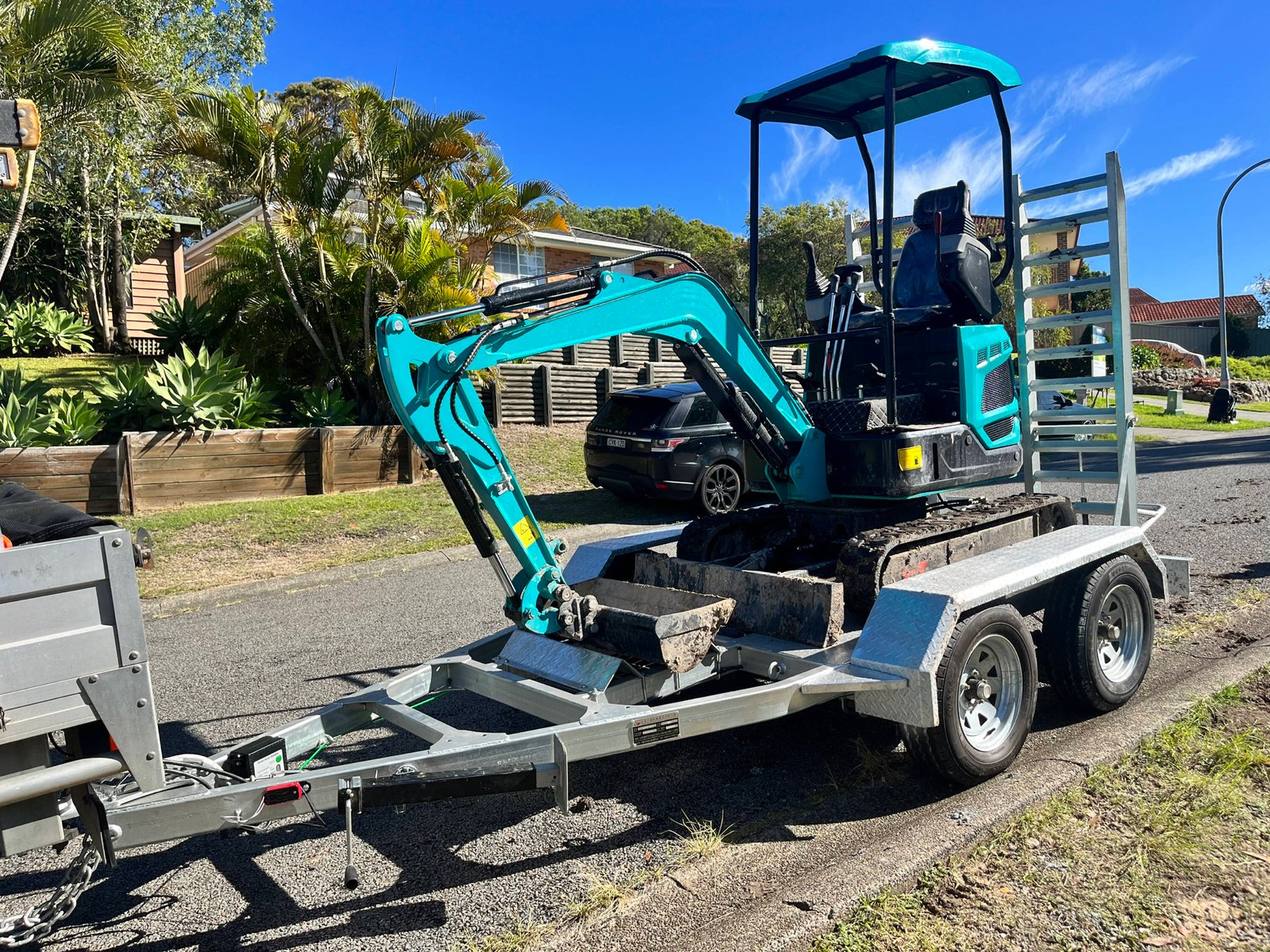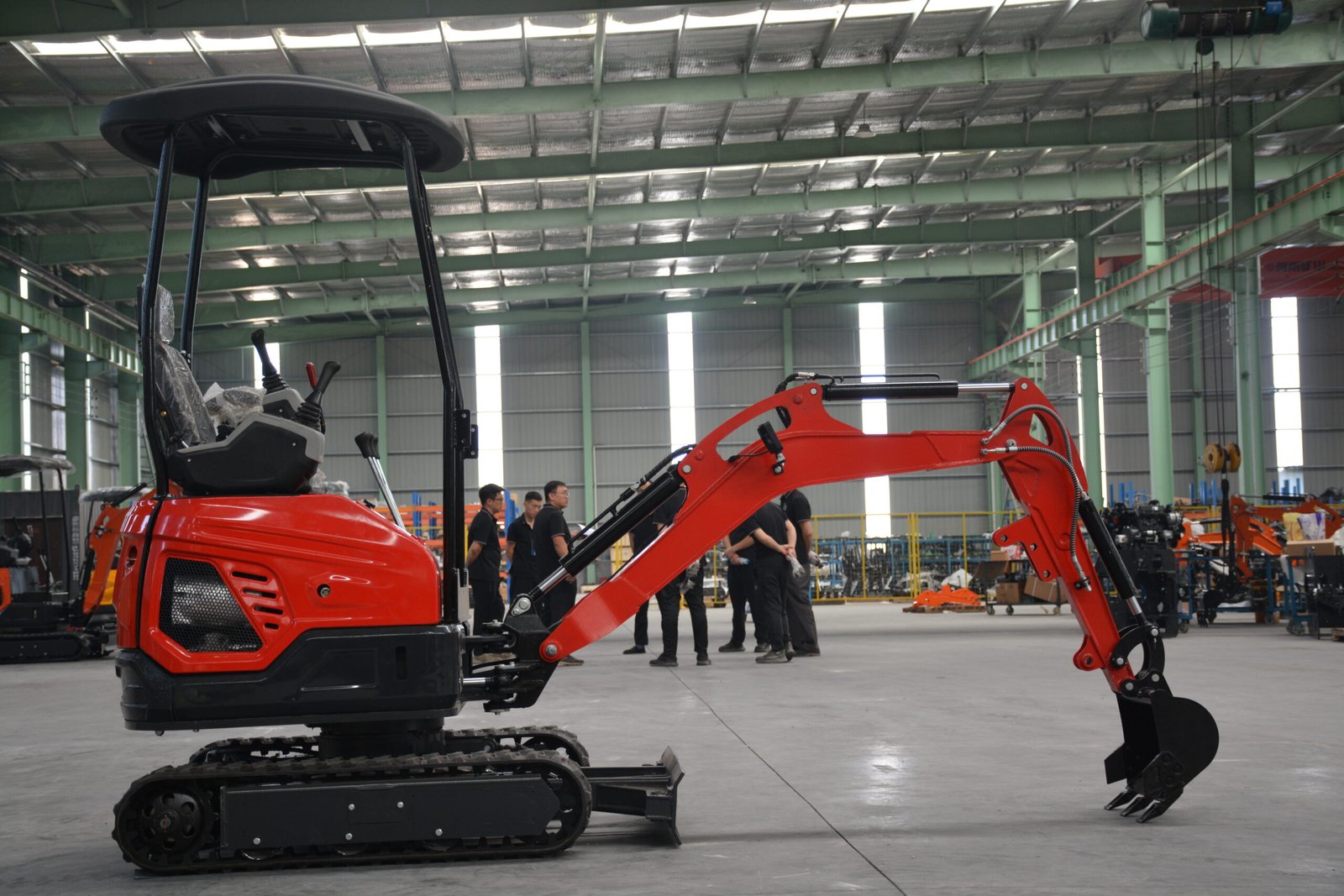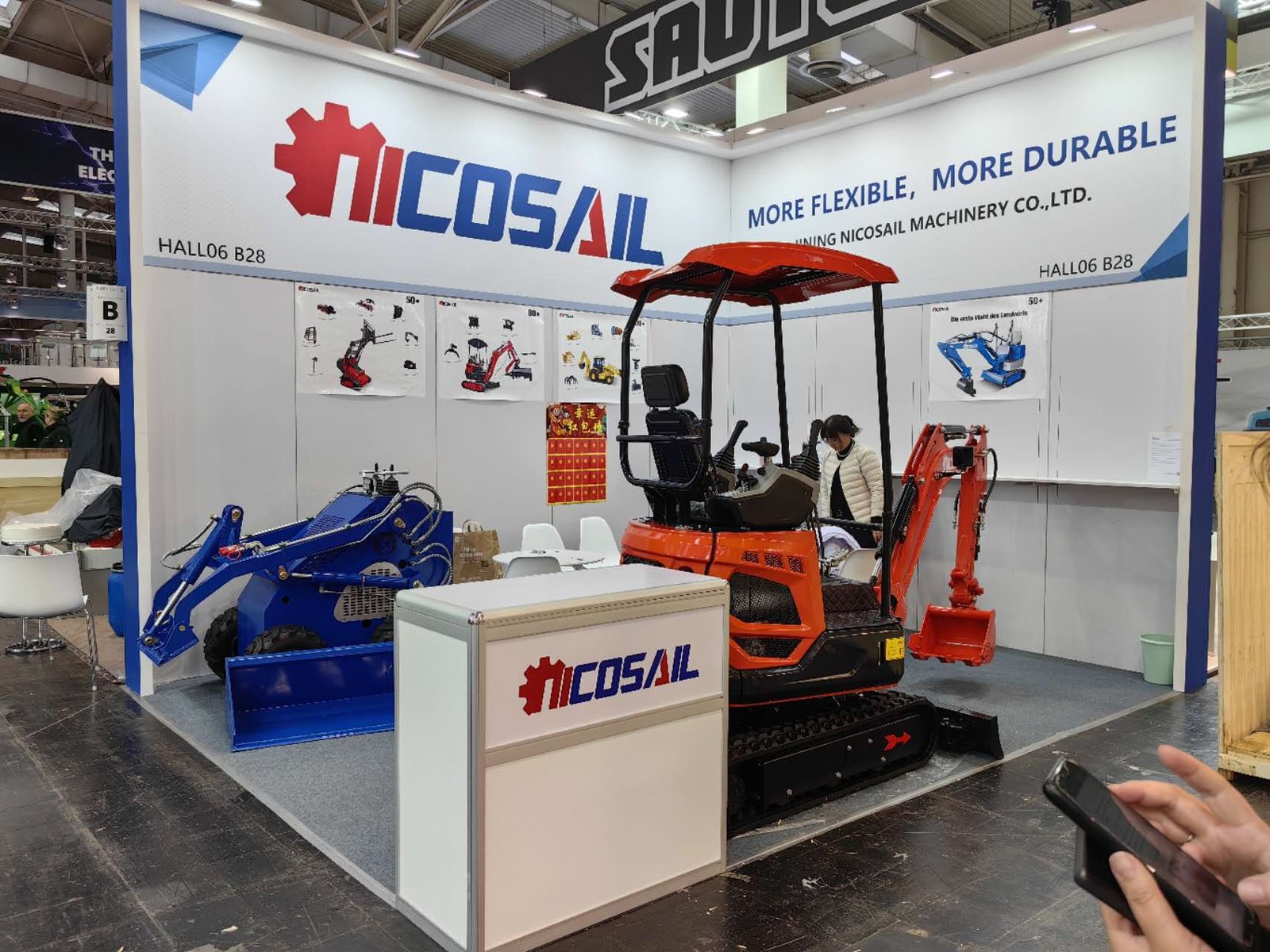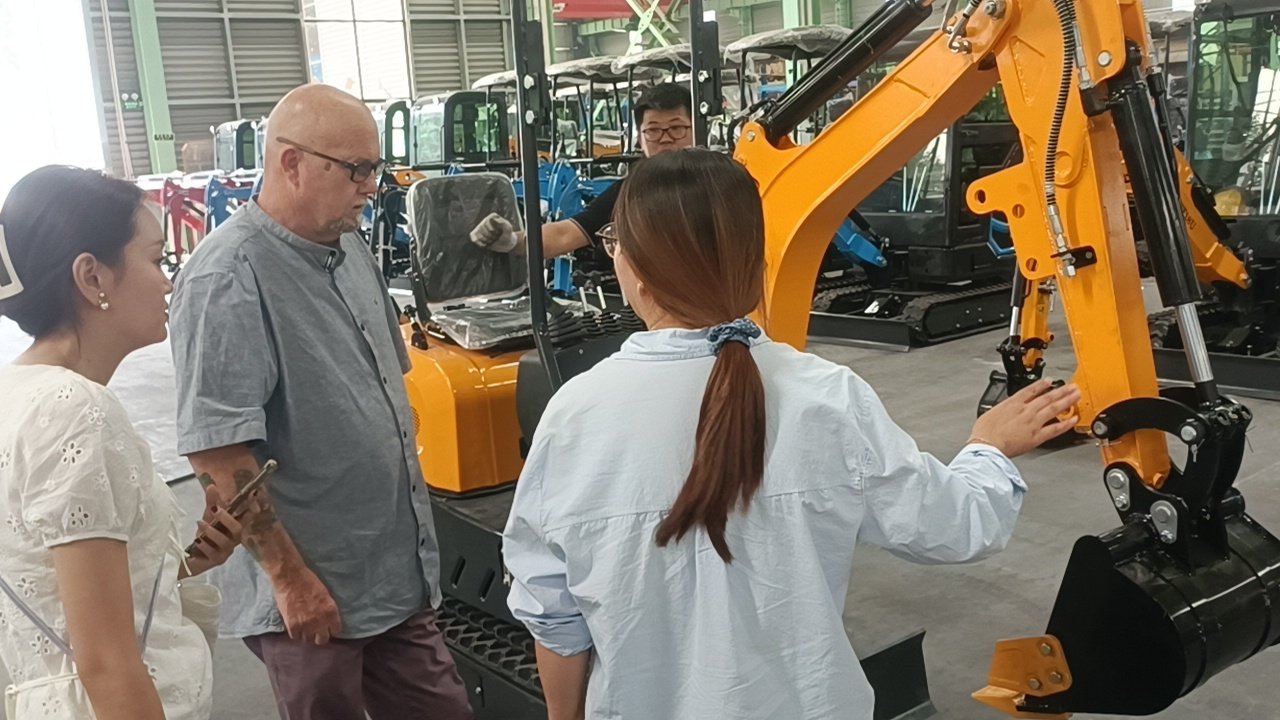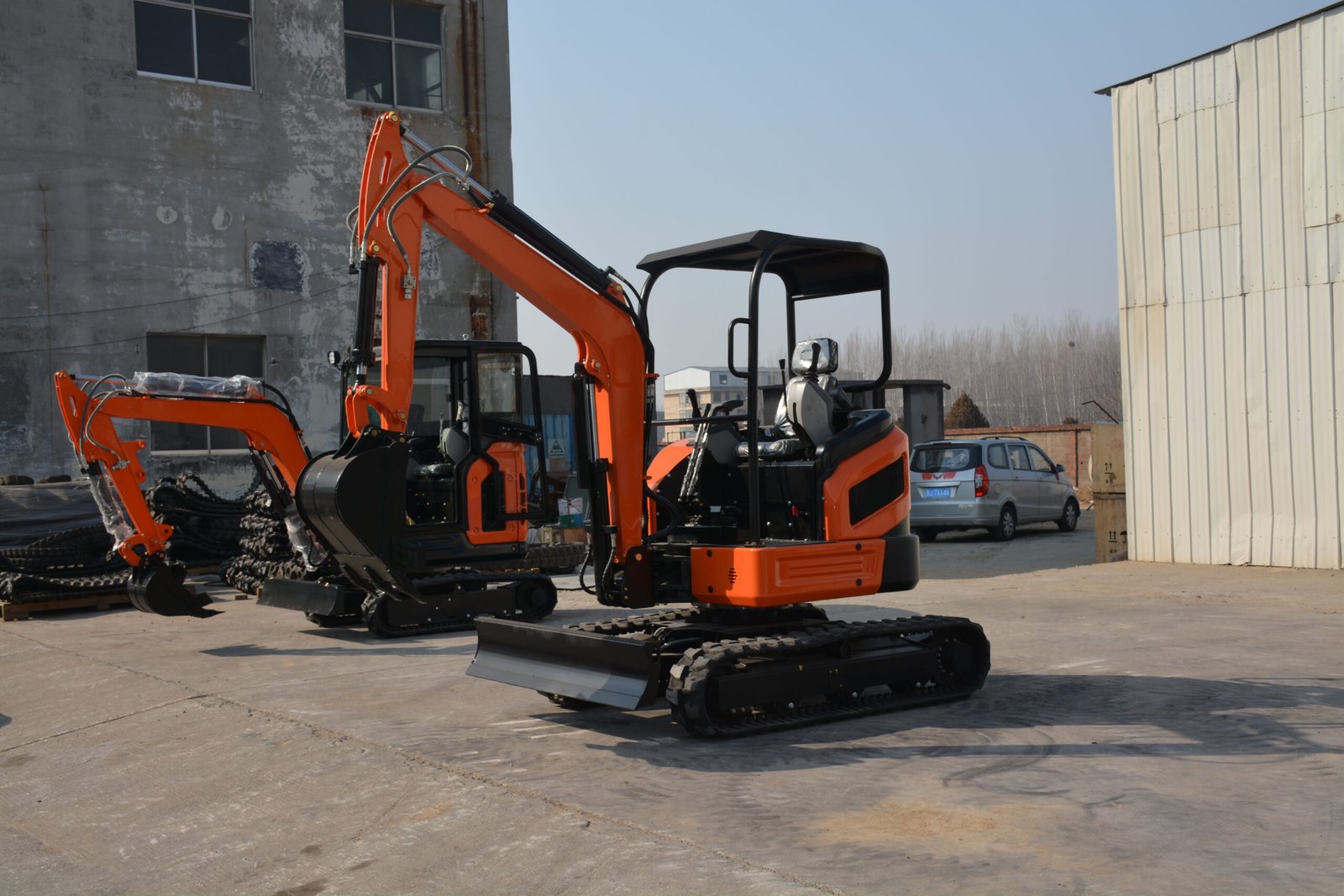Introduction: Why Small Chinese Excavators Are Gaining Global Popularity
In recent years, small Chinese excavators have become a hot topic in the construction and agricultural sectors. Compact, affordable, and increasingly sophisticated, these machines are reshaping how small-scale construction and landscaping projects are carried out worldwide. Buyers across North America, Europe, and Southeast Asia are turning their attention toward Chinese brands that combine affordability with modern technology.
Unlike traditional heavy-duty excavators that require large spaces and heavy transport, small excavators provide a flexible and efficient alternative for small construction sites, backyard projects, and municipal work. China’s industrial ecosystem, with thousands of specialized manufacturers, has made it possible to produce durable yet cost-efficient machines that rival Western brands at a fraction of the price.
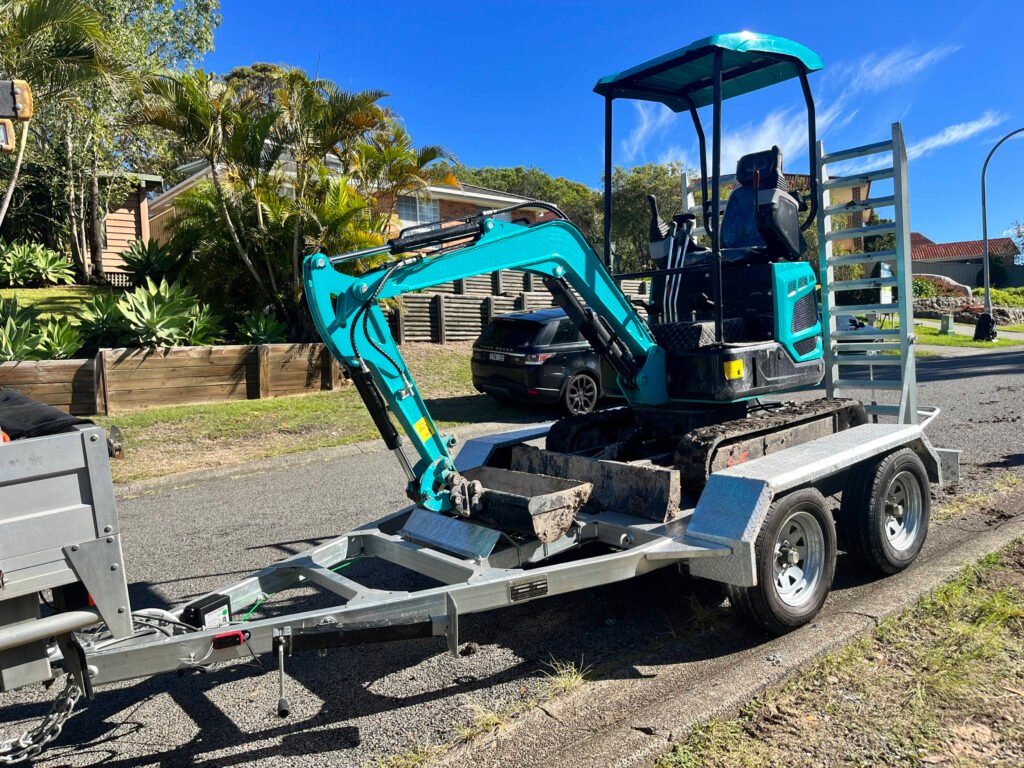
Understanding the Small Excavator Market in China
Rapid Industrial Growth and Competitive Pricing
China’s industrial machinery market has evolved rapidly over the past decade. Local manufacturers have invested heavily in research, automation, and export compliance, resulting in high-quality small excavators that meet global standards. Due to scale and competitive pricing, these machines offer excellent value for small contractors or farmers on a budget.
Innovation and Technological Improvements
Modern small excavators from China now feature advanced hydraulics, ergonomic controls, GPS assistance, and eco-friendly engines that meet European and U.S. emission standards. Brands like Nicosail have integrated cutting-edge features such as upgraded hydraulic systems and improved stability, making them reliable choices for both domestic and international markets.
Tip #1: Define Your Project Needs Clearly
Before purchasing any equipment, the first step is always understanding what you truly need. For example, a landscaping company may prioritize maneuverability and digging depth, while a construction contractor might focus on lifting capacity and attachment compatibility.
Consider Terrain, Depth, and Frequency of Use
Assess your work environment—soft soil, rocky ground, or confined spaces—and estimate how frequently the excavator will be used. This helps determine the optimal operating weight and digging depth. For example, a 1.5-ton mini excavator may suffice for light work, but for tougher terrains, consider models with reinforced hydraulic arms.
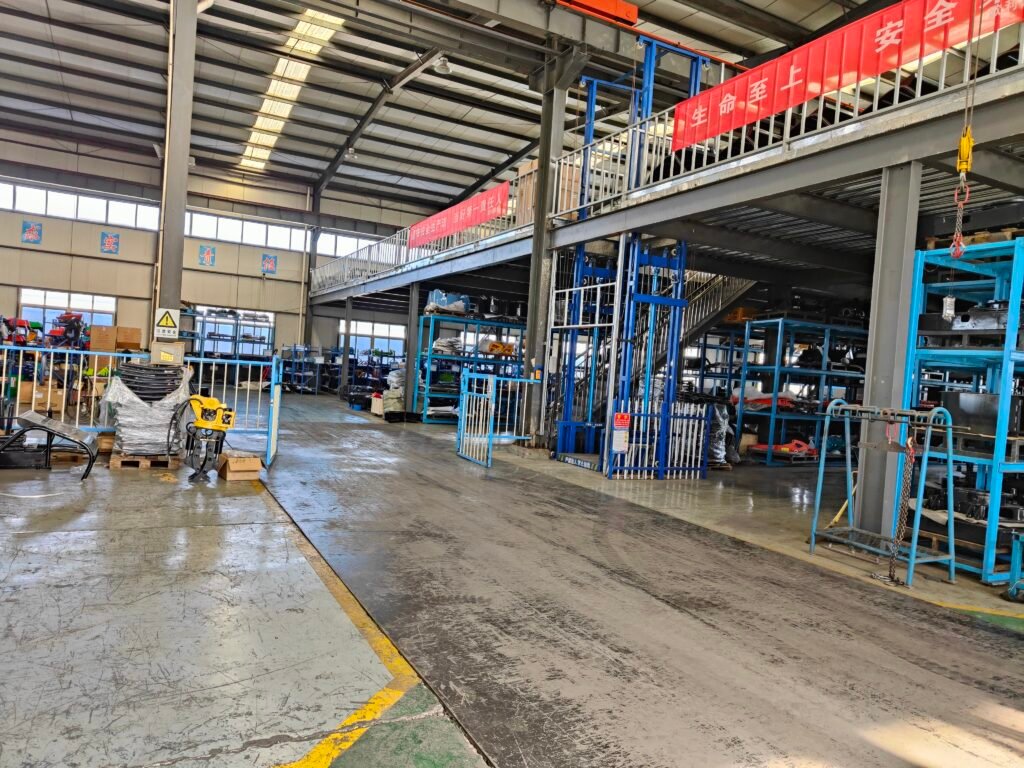
Tip #2: Choose the Right Engine Power and Hydraulic Capacity
The engine and hydraulic system define an excavator’s strength, smoothness, and longevity. A small engine doesn’t necessarily mean low performance, but balance is crucial.
How Horsepower Affects Productivity
Horsepower determines how quickly and efficiently your machine can dig, lift, or rotate. A compact excavator with 18–25 HP can handle most small-scale tasks efficiently while maintaining good fuel economy.
Hydraulic Systems: The Heart of Any Excavator
Hydraulics power the arms, bucket, and attachments. High-quality systems ensure smooth operation and reduce wear over time. When evaluating a machine, check for features like multi-valve hydraulics or load-sensing systems found in brands like Nicosail, which improve precision and fuel efficiency.
Tip #3: Evaluate Brand Reputation and Reliability
One of the most important aspects of buying a small Chinese excavator is brand credibility. While many manufacturers produce similar-looking machines, not all adhere to the same quality standards.
Why Nicosail Stands Out Among Chinese Manufacturers
Among emerging Chinese brands, Nicosail has earned recognition for producing small excavators that combine affordability with reliability. Their consistent build quality, international certifications, and customer-focused approach make them a trustworthy option without inflating prices.
Check Customer Reviews and Distributor Support
Always research online reviews, talk to verified distributors, and check whether replacement parts and technical support are available in your region. Reputable brands often have authorized service networks or quick global shipping options.
Tip #4: Inspect Build Quality and Materials Used
Durability is directly tied to material quality. Inspect key components like the boom, arm, and undercarriage. Look for reinforced steel construction, wear-resistant bushings, and high-tensile tracks. Even a budget excavator should feel sturdy and balanced during operation.

Tip #5: Understand Warranty Terms and After-Sales Support
A strong warranty is often a good indicator of manufacturer confidence.
What a Good Warranty Should Cover
Ensure it covers major components like the hydraulic pump, engine, and electrical systems for at least 12 months. Brands like Nicosail typically offer responsive after-sales support and quick turnaround on replacement parts—a sign of a dependable supplier.
Tip #6: Consider Maintenance and Spare Part Availability
Maintenance shouldn’t be complicated. Check how easily you can access filters, valves, and greasing points. It’s also crucial that spare parts are readily available internationally.
Nicosail’s Approach to Global Support and Parts Availability
Nicosail maintains partnerships with logistics companies to deliver spare parts quickly to overseas customers, ensuring minimal downtime—a factor worth considering when comparing manufacturers.
Tip #7: Compare Price vs. Value (Not Just the Cost Tag)
While affordability is a major appeal, focus on total cost of ownership—fuel efficiency, longevity, and resale value. Sometimes, a slightly higher upfront price can save thousands over years of use.
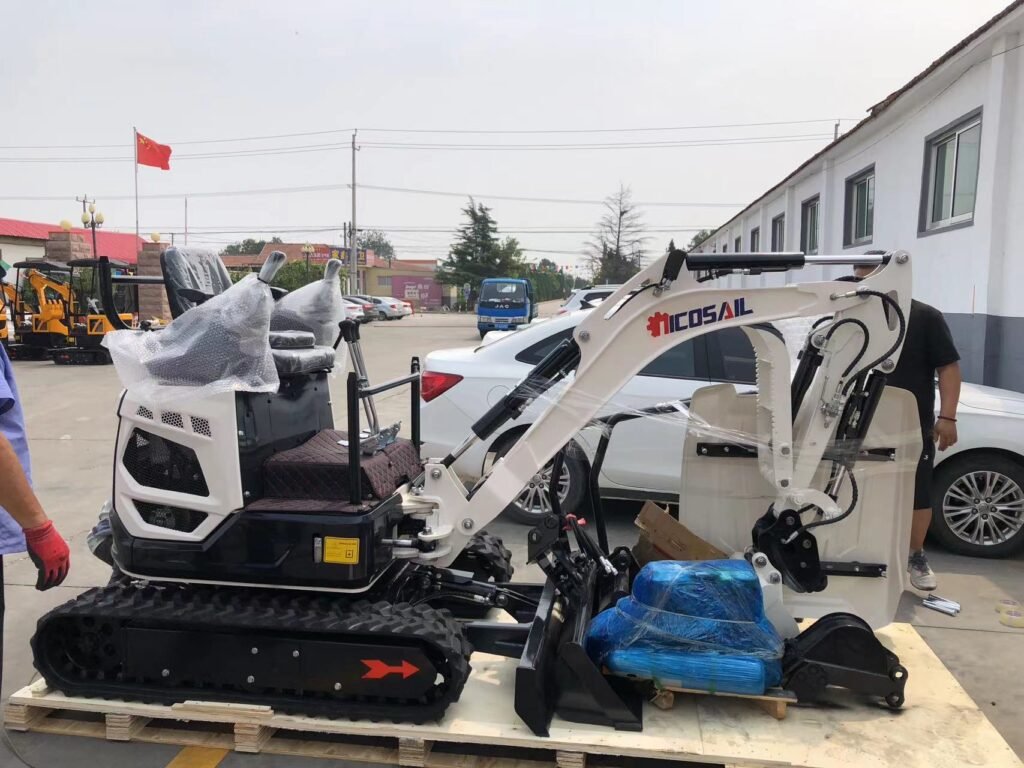
Tip #8: Verify Compliance with Safety and Emission Standards
Ensure the excavator complies with CE, EPA, or ISO certifications if you plan to import it. Compliance ensures safety, reliability, and smoother customs clearance.
Tip #9: Check Machine Versatility and Attachment Compatibility
When you invest in a small Chinese excavator, versatility should be high on your checklist. The best models aren’t just diggers—they’re multi-functional workhorses that can handle various attachments for different jobs.
Hydraulic Breakers, Augers, and Buckets
Attachments such as hydraulic breakers, augers, and tilting buckets significantly expand an excavator’s capabilities. For instance:
- A hydraulic breaker can help with demolishing concrete or hard soil.
- An auger is ideal for drilling fence posts or foundation holes.
- A tilting bucket enables more precise grading and slope shaping.
Before purchasing, confirm that the excavator’s hydraulic system and quick-coupler design are compatible with standard attachments. Reputable manufacturers like Nicosail often provide universal coupler systems, making it easy to switch between tools without hassle.
Tip #10: Ensure the Excavator Is Easy to Operate
Even the most powerful excavator loses its value if it’s difficult to handle. Comfort and user-friendly operation are essential for long work hours. Look for:
- Ergonomically designed operator cabins
- Responsive joystick controls
- 360° visibility
- Adjustable seating and levers
Compact models from established Chinese brands, including Nicosail, emphasize smooth control interfaces and intuitive design—perfect for both seasoned operators and beginners.
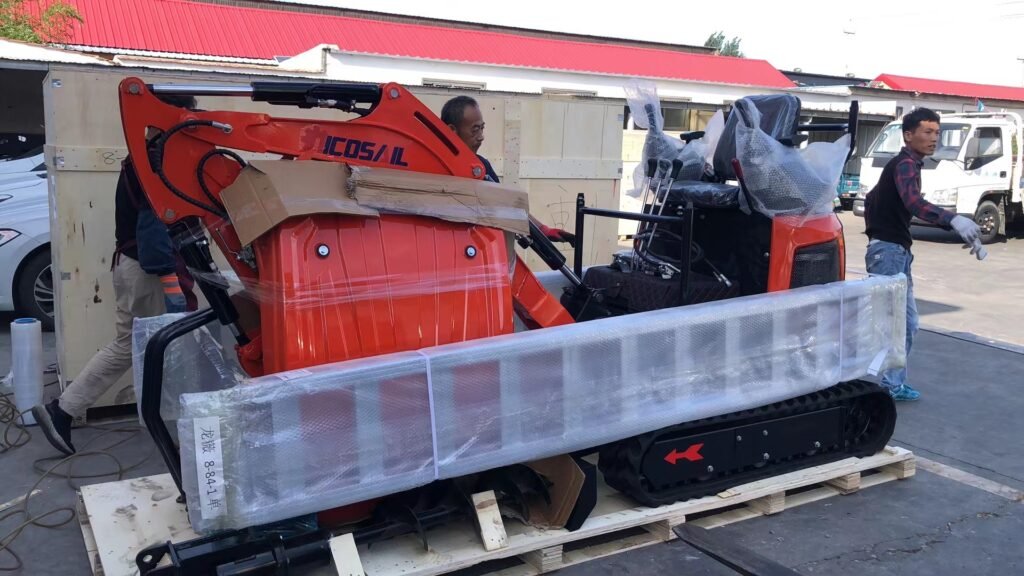
Tip #11: Ask About Fuel Efficiency and Environmental Impact
Fuel efficiency is not just about saving money—it also affects long-term sustainability. Modern small excavators often use diesel engines with low-emission technology, reducing environmental footprint while maintaining power.
Choose models that comply with Tier 4 or Euro V emission standards. Some manufacturers, such as Nicosail, have integrated eco-mode operation, which automatically adjusts engine RPMs to match workload intensity—offering excellent fuel savings over time.
Tip #12: Request a Demo or Performance Test
Before signing a purchase agreement, always request a demonstration. Seeing the machine in action allows you to:
- Assess digging speed and accuracy
- Evaluate hydraulic smoothness
- Check for vibration, noise, and control response
If you’re purchasing remotely, ask the manufacturer for a live video demonstration or a test operation report. This step helps you identify potential flaws before committing financially.
Tip #13: Understand Import Regulations and Shipping Logistics
When importing small Chinese excavators, understanding customs procedures and logistics is crucial. Import duties, taxes, and documentation vary by country.
Many reliable Chinese manufacturers, including Nicosail, assist buyers with:
- Export documentation (CE, ISO, or EPA certificates)
- Shipping coordination
- Customs clearance guidance
Choosing a manufacturer experienced in international logistics can save time and prevent costly delays.

Tip #14: Read the Technical Manual Carefully
Don’t underestimate the importance of the technical manual. It provides essential information about:
- Routine maintenance intervals
- Lubrication charts
- Hydraulic system diagrams
- Safety instructions
Familiarizing yourself with these details ensures better machine performance and longer service life. Reliable suppliers often provide comprehensive, multilingual manuals to support global users.
Tip #15: Check for OEM or ODM Customization Options
Customization can make your excavator more suited to your specific needs. Some Chinese manufacturers offer OEM (Original Equipment Manufacturer) or ODM (Original Design Manufacturer) options, allowing buyers to:
- Adjust color and branding
- Modify bucket size
- Add specialized attachments
Nicosail, for example, offers customization packages for bulk buyers, tailoring excavators to meet agricultural, landscaping, or construction-specific requirements.
Common Mistakes Buyers Make When Purchasing a Small Excavator
Even seasoned buyers can make costly mistakes. Here are common pitfalls to avoid:
- Focusing solely on price: The cheapest excavator might cost more in maintenance and downtime later.
- Ignoring after-sales support: A low-cost machine without warranty or parts backup is a bad deal.
- Overestimating machine size: Buying a large excavator for small projects wastes fuel and space.
- Skipping import documentation: Missing CE or EPA certificates can delay customs clearance.
- Not verifying manufacturer credentials: Always check the supplier’s registration and past export history.
Avoiding these errors ensures your investment delivers consistent performance for years.
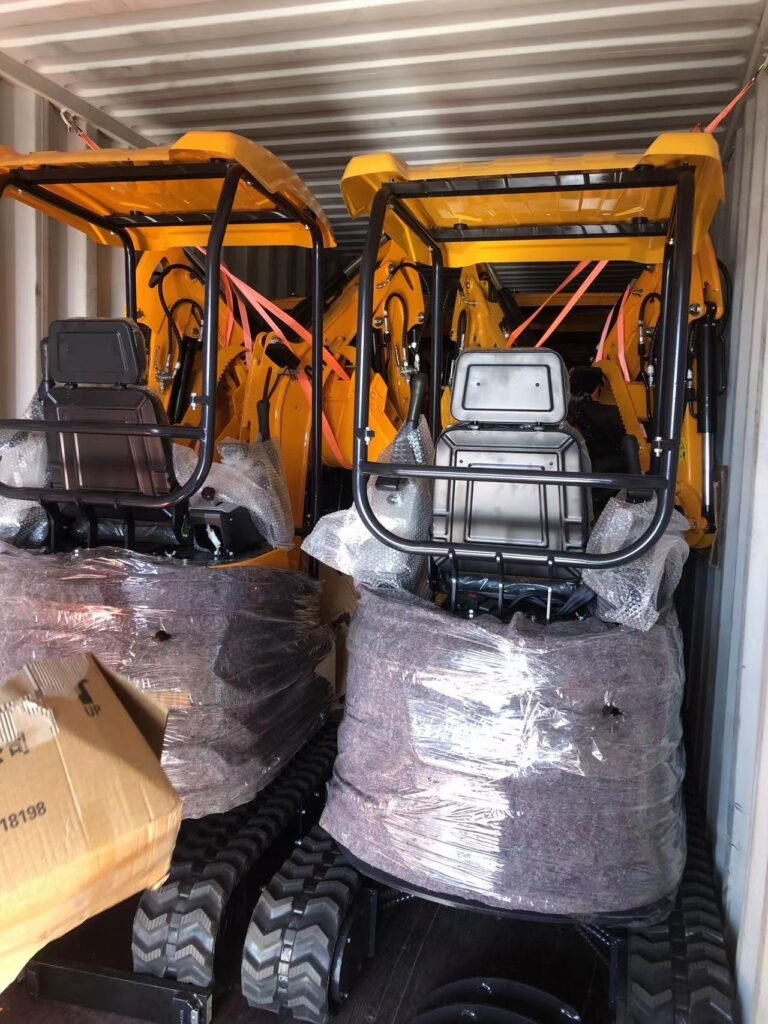
FAQs About Buying Small Chinese Excavators
1. Are small Chinese excavators reliable for long-term use?
Yes. Many Chinese excavator brands, including Nicosail, have significantly improved their production standards, offering durable machines with reliable engines and advanced hydraulics. With proper maintenance, they can perform effectively for many years.
2. How much does a small Chinese excavator typically cost?
Prices generally range from $5,000 to $20,000, depending on model size, engine power, and optional features. Small 1-ton models are ideal for light tasks, while 3-ton units are suited for more demanding jobs.
3. Can I get replacement parts easily outside China?
Yes. Established manufacturers provide global logistics support and maintain partnerships with distributors abroad. Nicosail, for instance, offers worldwide spare part delivery and online technical guidance.
4. What type of fuel do small excavators use?
Most use diesel engines, though some new models now support hybrid or electric configurations. Diesel remains preferred for its torque and reliability in heavy workloads.
5. How do I check if my excavator meets international safety standards?
Look for CE (Europe), EPA (USA), or ISO certification marks on the product label or accompanying documentation. These indicate compliance with recognized safety and emission standards.
6. What kind of projects are best suited for small excavators?
They’re ideal for landscaping, trenching, fence installation, small construction projects, and agricultural tasks. Their compact size allows them to operate efficiently in tight spaces or residential areas.
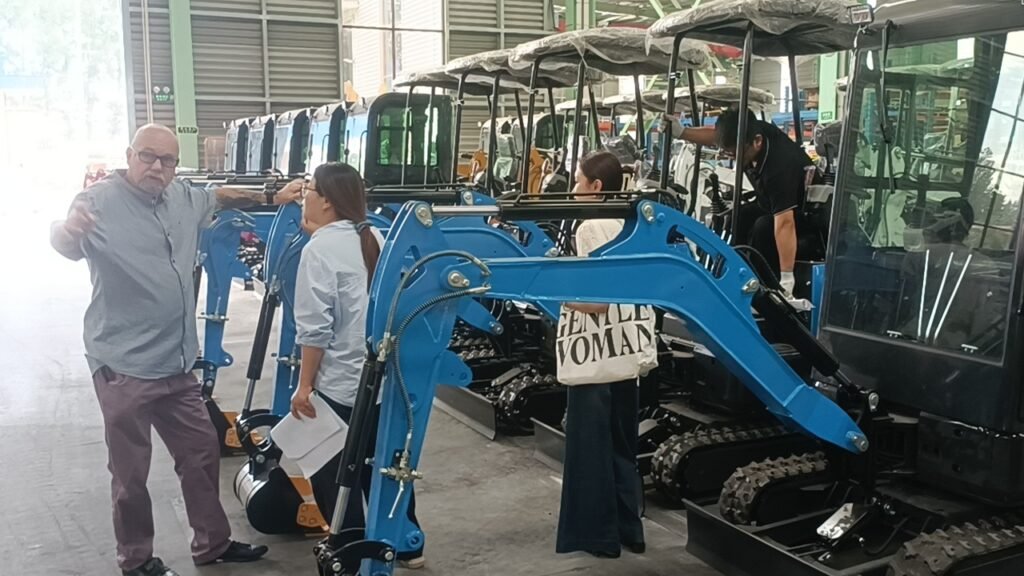
7. Are Chinese excavators easy to maintain for beginners?
Yes. Most small Chinese excavators are designed with easy-access panels and straightforward service routines. Brands like Nicosail also include user-friendly maintenance guides for first-time owners.
8. How long is the typical warranty period for a small excavator?
A standard warranty lasts 12–24 months, depending on the manufacturer. Always confirm whether it includes critical components such as the engine, hydraulic pump, and undercarriage.
9. Can I test the excavator before shipping if I’m buying online?
Reputable suppliers allow virtual testing sessions or provide detailed performance videos before purchase. This helps confirm machine condition and performance before shipment.
10. What factors influence shipping costs for small excavators?
Shipping costs depend on weight, destination, and container type (FCL or LCL). Working with brands experienced in export logistics—such as Nicosail—can minimize unexpected expenses.
Conclusion: Making a Smart Investment for Long-Term Success
Buying a small Chinese excavator is a strategic decision that can significantly improve your work efficiency and reduce labor costs. However, making a smart purchase involves more than just comparing prices—it’s about understanding the brand reputation, build quality, after-sales service, and machine versatility.
Reliable brands such as Nicosail have demonstrated that affordability doesn’t have to come at the expense of performance. Their commitment to innovation, global support, and customer satisfaction exemplifies what modern Chinese engineering can achieve.
Before finalizing your purchase:
- Define your operational requirements clearly.
- Choose a reputable manufacturer with strong warranty terms.
- Verify safety compliance and check part availability.
- Always request a test or demo before shipping.
By following these expert tips, you’ll not only avoid costly mistakes but also ensure that your small Chinese excavator becomes a long-term asset—enhancing your productivity, profitability, and project success for years to come.

